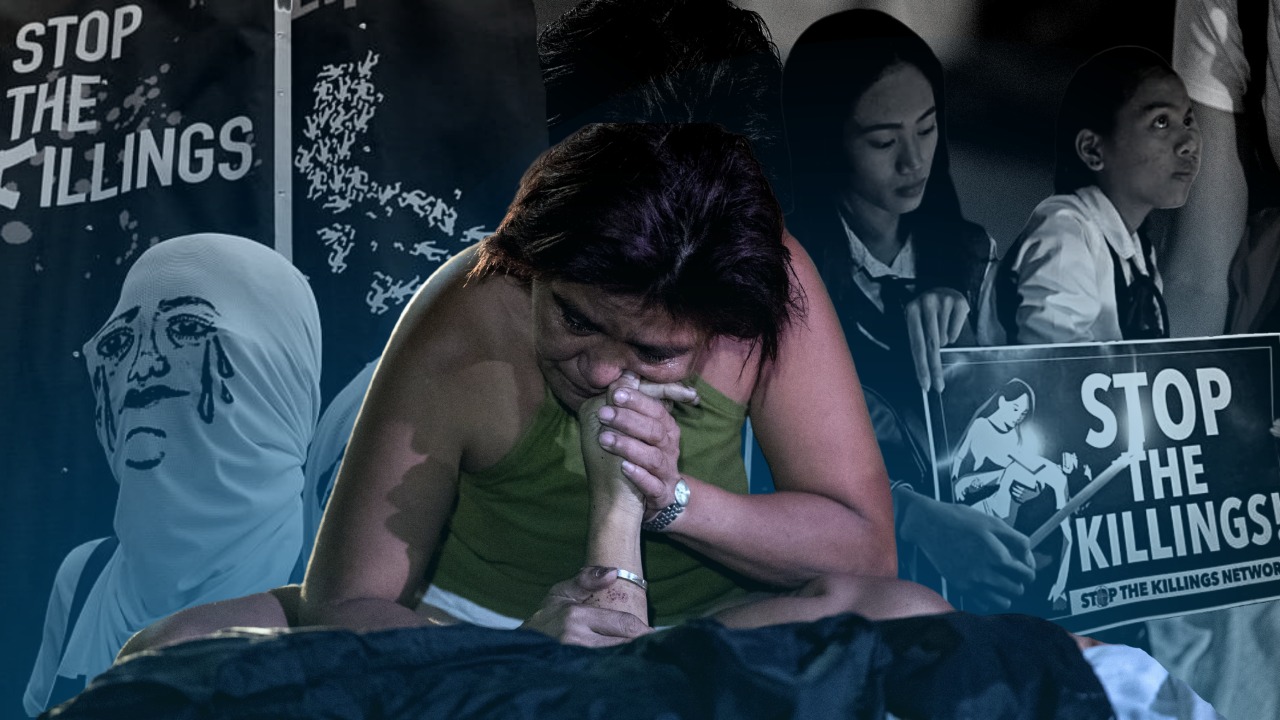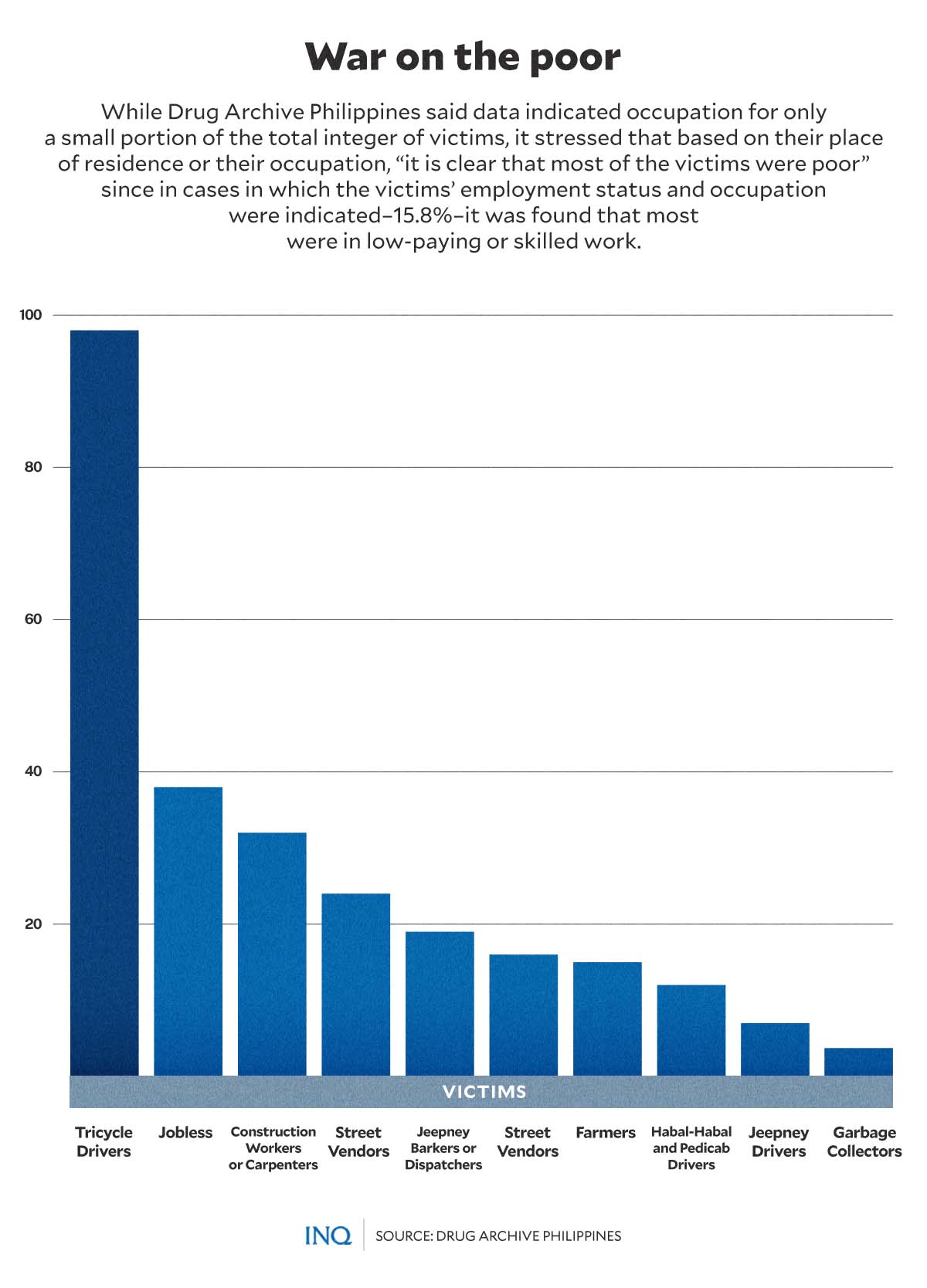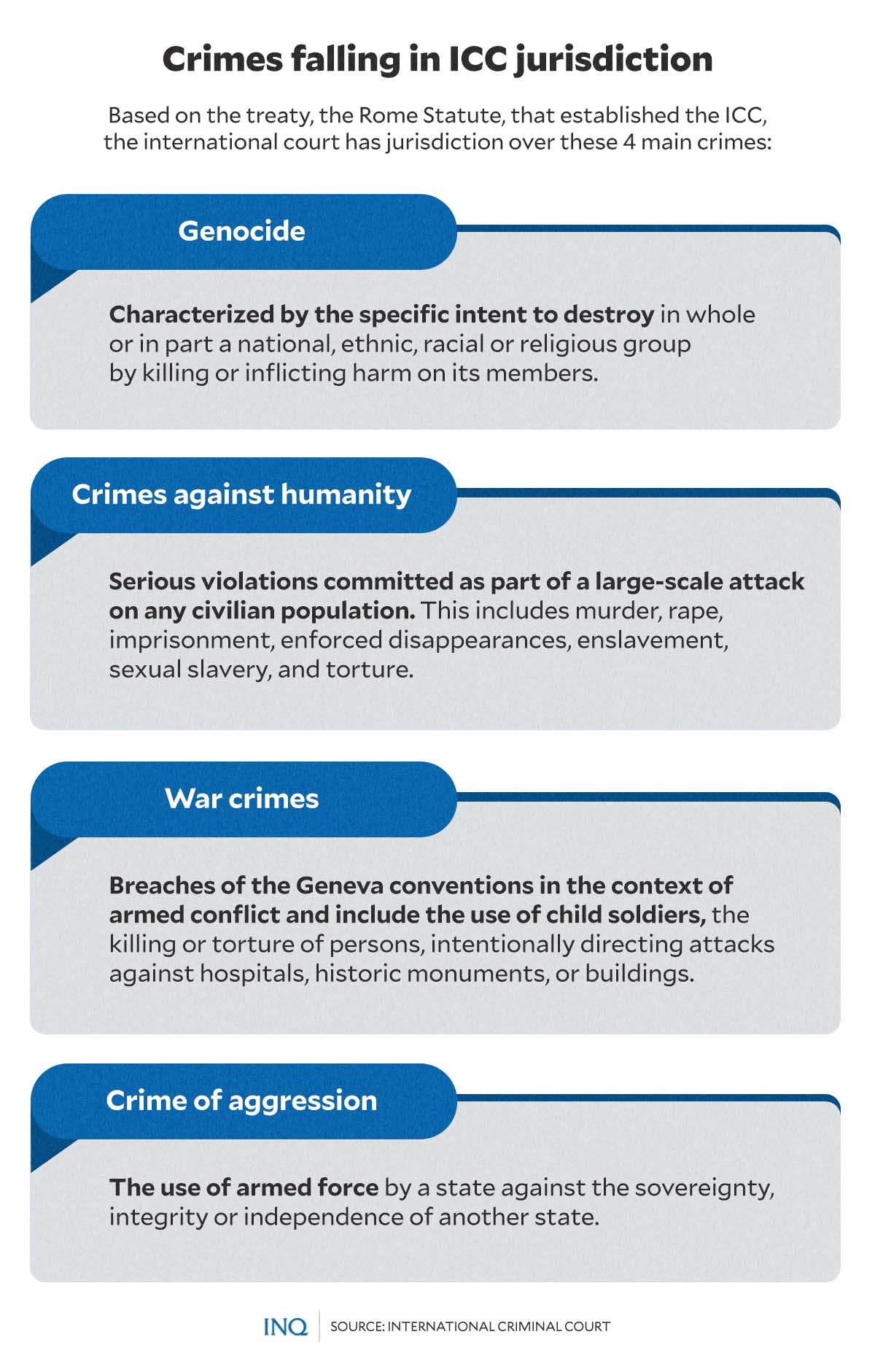PH return to ICC: Debate swirls around whether Senate OK needed again
[EDITOR’S NOTE: We’re reposting this article as former President Rodrigo Duterte has been arrested with the issuance of a warrant by the International Criminal Court for his crimes against humanity case.]
MANILA, Philippines—The Philippines, pushed by then President Rodrigo Duterte, withdrew from the international treaty Rome Statute creating the International Criminal Court (ICC) in 2018 without concurrence by the Senate, but now that the clamor is growing for the country to return to the folds of ICC, a key question emerges—is executive action by President Ferdinand “Bongbong” Marcos Jr. enough or not?
Looking back, Marcos, who said last year that the Philippines has no intention to return to the ICC, pointed out last July that the government has already ended its dealings with the ICC, which denied Philippine government attempt to block the investigation into the bloodthirsty anti-drug campaign of Duterte when he was president from 2016 to 2022.
READ: LIVE UPDATES: Duterte arrested by PNP after ICC issues warrant
Last month, however, as congressmen filed resolutions to ask the government to cooperate with the ICC, Marcos, who had a strong stand against the ICC even before he was elected, said that proposals for the Philippines to return to the fold of the ICC are now being considered.
READ: PH return to ICC fold ‘under study’– Bongbong Marcos
But should the Philippines decide to rejoin the ICC, which has decided to investigate the thousands of killings in Duterte’s bloodthirsty war on drugs that were said to have been committed from 2011 to 2019, can Marcos decide for the Philippines even without concurrence from the Senate, like what Duterte did in 2018?
It was pointed out by former senator Franklin Drilon that the “yes” of two-thirds of the Senate is no longer needed, explaining that Marcos can rely on the original resolution or ratification of the Rome Statute that established the ICC over 20 years ago.
Drilon said “it remains valid and in effect,” stressing that Senate Resolution No. 57, which was passed in 2011, “like any other resolution or law, remains legally binding unless specifically repealed.” The ratification of the Rome Statute, he said, “has never been revoked.”
This, as while the Supreme Court (SC) junked in 2021 the petitions filed against the withdrawal of Duterte from the ICC for being “moot and academic,” Drilon said he believed that the SC affirmed the need for Senate concurrence in the withdrawal from treaties and international agreements, the chamber’s exclusive power.
He said in 2021 that the SC “recognized and upheld the role and power of the Senate as the partner of the president, not only in treaty-making but in treaty abrogation as well,” pointing to the decision in Pangilinan v. Cayetano, which was promulgated on March 16, 2021.
Section 21, Article VII of the Constitution provides that no treaty or international agreement shall be valid and effective unless concurred in by “at least two-thirds of all the Members of the Senate.”
As stated in the SC decision cited by Drilon, “the president’s discretion on unilaterally withdrawing from any treaty or international agreement is not absolute.” It said: “The president enjoys a degree of leeway to withdraw from treaties. However, this leeway cannot go beyond the president’s authority under the Constitution and the laws.”
Constitutional requirement
For staunch Duterte ally Sen. Ronald “Bato” Dela Rosa, however, the government would need to go through the process, which would require the concurrence , again, of the Senate. He is one of the respondents in the cases involving crimes against humanity filed with the ICC.
READ: Senate nod needed to rejoin ICC, says Senator De la Rosa
He told ANC that “[if the Philippines] wants to rejoin […] our representative in the Hague would signify our intent to recognize again the agreement, it has to be ratified by the President, and after the President’s ratification, it has to be concurred (in) by the Senate by two-thirds vote.”
“So that’s the process. [It’s] back to zero, back to square one,” Dela Rosa stressed.
This was pointed out by lawyer Kristina Conti, too, who brought the first complaints to the ICC in 2017, saying that the concurrence of the Senate was needed should the Philippines decide to return to the ICC. “Generally, yes,” she told INQUIRER.net.
“[There] could be two ways but actually, the first way, which is to rescind the decision of withdrawal, like you will [have to] cancel the decision and to rescind the decision,” Conti said.
RELATED STORY: Lawyers: PH able, but not willing to do justice to every man
However, she said “at this point, the ICC has already accepted the withdrawal of the Philippines and therefore the second possible means is […] to sign again the Rome Statute and bind ourselves to the ICC again.”
Conti, secretary general of the National Union of People’s Lawyers-Metro Manila, explained over ANC that “that’s the only way we can rejoin, to sign it as a treaty, that’s why the Senate is needed because it requires Senate concurrence for the Philippines to be bound by a treaty.”
As explained by the Coalition for the International Criminal Court, “when we say joining the ICC,’ we are referring to states ratifying, or acceding to, the Rome Statute,” the treaty that established the ICC.
The statute is subject to ratification, acceptance or approval by states and the instruments of ratification, acceptance or approval shall be deposited with the secretary general of the United Nations.
PH commitment
Since 1996, when Fidel Ramos was president, the Philippines has participated in the ICC’s establishment, with the SC saying that the government took an “active role in the deliberations as a member of the Drafting Committee.”
Then on Dec. 28, 2000, the Philippines, through then President Joseph Ejercito Estrada, signed the Rome Statute , signifying “the Philippines’ intent to be bound by the provisions of the treaty, subject to the domestic requirements for its validity and enforceability.”
Based on SC documents, on Dec. 11, 2009, with Senate concurrence to the Rome Statute still pending, Gloria Macapagal-Arroyo, who was the President then, signed into law Republic Act No. 9851, or the Philippine Act on Crimes Against International Humanitarian Law, Genocide, and Other Crimes Against Humanity.
As pointed out by the SC, the law replicated a lot of the statute’s provisions.
The Senate concurrence to the Rome Statute was obtained a year after the election of Benigno Aquino III as president. With a vote of 17-1, the Senate passed a resolution, which enabled the Philippines’ consummate accession to the statute.
It was on Aug. 30, 2011 when the Philippines deposited the instrument of ratification of the Rome Statute. Then on Nov. 1, 2011, the statute entered into force, with the Philippines becoming the 16th state to belong to the Group of Asia-Pacific State Parties in the ICC.
But in 2018, as cases were filed at the ICC for the killings related to Duterte’s anti-drug campaign, the government announced that it was withdrawing from the Rome Statute of the ICC. The withdrawal took effect a year later on March 17, 2019.
The police had said over 6,000 drug suspects were killed in the bloody war. Groups that monitored the bloodshed said at least 30,000 had been killed, many in gangland -style street executions, warrantless home raids and other means.
However, to disprove the claims that the government was not willing to prosecute the killings—the main reason behind the filing of cases at the ICC—the DOJ said 50 of the 6,000 deaths were already being investigated, but out of more than 50, only three cases were successfully prosecuted.
RELATED STORY: Drug war victims’ families welcome review of ICC exit


